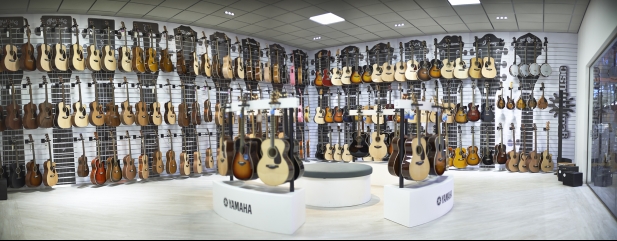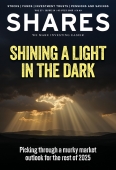Archived article
Please note that tax, investment, pension and ISA rules can change and the information and any views contained in this article may now be inaccurate.
Small World: an artificial intelligence newcomer and the smaller company winners and losers

As ever, it has been a busy time for small-cap investors, with companies joining the market and companies leaving the market, either of their own accord – as in the case of sports data provider 4Gloabl (4GBL:AIM) – or because they have been acquired, as in the case of Downing Renewables & Infrastructure Trust (DORE), which was taken private by its largest shareholder.
It has also been a time of contrasting fortunes in terms of orders, with some firms scooping up more projects and some losing out, mostly due to declining business confidence against a backdrop of increasing geopolitical uncertainty.
FIRST PAST THE POST
We start this month with newcomer and ‘AI agent marketplace’ Sundae Bar (SBAR:AIM). The company moved from Aquis to the junior market after buying Ora Technology so technically it isn’t a new listing.
The London-based firm, which is developing a platform to provide tools for creating and monetising AI agents, got off to a flying start with the shares trading at a 40% premium to their 8p listing price within days.
Thanks to strong retail interest, the firm placed more shares last week at 11p to fund a ‘bitcoin treasury’ which it said would ‘position it advantageously for the future while preserving capital flexibility and operational resilience’.
Also hitting the right note with investors was online instrument seller Gear4music (G4M:AIM), which raised its guidance for the year to March 2026 thanks to improving sales momentum and gross margins, sending its shares to a two-year high.
As well as posting a surge in earnings and a sharp reduction in debt for the year to March 2025, the firm has capitalised on the recent failure of two UK competitors by snapping up inventory at reduced prices and strengthening its market position.
It has also been a good month for cutting-edge companies such as AFC Energy (AFC:AIM), Light Science Technology (LST) and Synectics (SNX:AIM).
AFC, which is a leading producer of hydrogen power generation technology, revealed after an extensive value engineering exercise it had reduced the build cost of its 30kW (kilowatt) fuel cell generators by a massive 85%, well ahead of its target, which could drive the adoption of its technology to replace diesel generators at cost parity.
The firm also announced it had formed a global partnership with Volex (VLX) to drive costs down further through materials leverage and economies of scale, sending its shares to a new high for the year.
Light Science Technology, which has become something of a regular in these pages, for all the right reasons, announced it had won a new lighting contract and been awarded a patent for sensorGRO, its environmental sensor, which with further development could be used to monitor water and air pollution and carbon emissions.
Synectics, a leading player in security and surveillance systems, also celebrated the award of a new contract, worth $4.8 million, from a major client in South-East Asia, building on May’s systems integration contract win with UK travel operator Stagecoach.
OFF THE BRIDLE
It was a month to forget for firms such as data personalisation firm Eagle Eye Solutions (EYE:AIM) and human challenge clinical trials provider hVIVO (HVO:AIM) as both suffered the loss of a major contract.
Eagle Eye, which enables mass retailers to offer digitalised personal marketing to their customers, announced it had lost a major contract with a nationwide US grocer worth between £9 million and £10 million with effect from the start of August 2025.
The loss of the contract, which Eagle Eye said was high-margin, is expected to have a ‘material’ impact on the firm’s results for the year to June 2026, and the news sent the shares down 43% on the day.
It was a similar story for hVIVO, whose shares collapsed 46% on the revelation two human challenge trial contracts had been cancelled, one of which was ‘significant’, while another had been postponed due to ‘the current uncertainties in the pharmaceutical industry and the continued depressed biotech financing market,’ the firm said.
Meanwhile, small investors in electric vehicle charging company Pod Point (PODP) were finally put out of their misery after French utility giant and majority shareholder EDF Energy agreed to buy the rump of the company at 6.5p per share, a small premium to the underlying price but a far cry from the 225p IPO price back in 2021 and a cautionary tale of large-scale value destruction.
FALLEN AT THE FIRST FENCE
Disappointing the market with your maiden results isn’t ideal, but it seems to be on the increase among smaller companies.
Generative AI services provider GenIP (GNIP:AIM), which floated last October, posted a loss for the period from February to December 2024 as operating costs dwarfed revenue.
Sales of $123,000 were almost entirely offset by cost of sales of $108,000, after which running cots of $904,000 – including $359,00 of share-based payments to employees – sent the company to a substantial operating loss.
Chief executive Melissa Cruz insisted the firm had made ‘strong progress’ and was ‘well-positioned for expansion and success,’ but the shares dropped 10% on news of the loss.
There was an even less positive reaction to the recent trading update from defence consultancy RC Fornax (RCFX:AIM), another relative newcomer.
Having debuted strongly in February and opened a new state-of-the-art headquarters in Bristol in April to scale its operations in line with what it called its growing project portfolio, the firm lowered expectations last month blaming delayed and reduced spending in the short term by its customers.
The stock fell 46% on the news, wiping out all its gains from the IPO, while chief operating officer and co-founder Daniel Clark found himself taking ‘a career break’.
Important information:
These articles are provided by Shares magazine which is published by AJ Bell Media, a part of AJ Bell. Shares is not written by AJ Bell.
Shares is provided for your general information and use and is not a personal recommendation to invest. It is not intended to be relied upon by you in making or not making any investment decisions. The investments referred to in these articles will not be suitable for all investors. If in doubt please seek appropriate independent financial advice.
Investors acting on the information in these articles do so at their own risk and AJ Bell Media and its staff do not accept liability for losses suffered by investors as a result of their investment decisions.
 magazine
magazine








